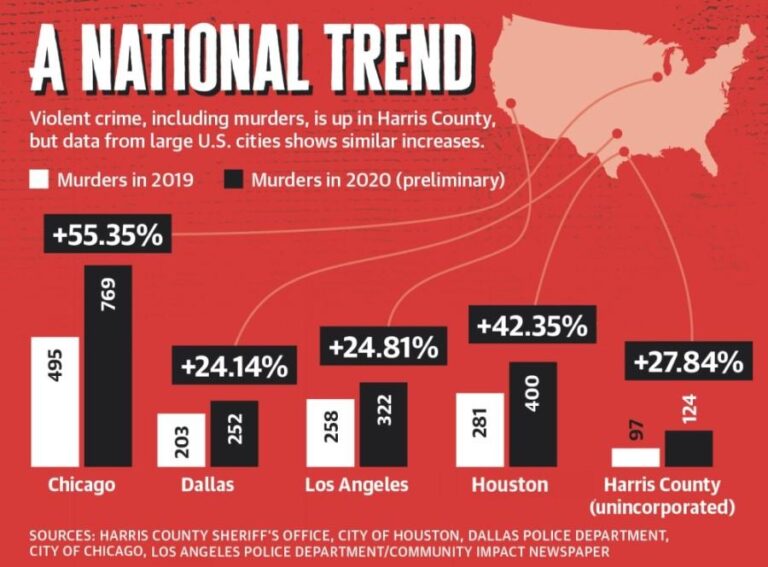A recent analysis of criminal justice data reveals that U.S. citizens in Harris County are twice as likely to be formally charged with a crime compared to non-citizens. This startling statistic, highlighted in a report by Houston Landing, sheds new light on broader patterns of prosecution and raises urgent questions about potential disparities within the county’s legal system. As Harris County continues to be one of the nation’s largest and most diverse jurisdictions, these findings have significant implications for public policy and community trust in law enforcement.
Disparities in Charging Practices Raise Concerns About Equity in Harris County
Recent analyses of charging records in Harris County reveal a troubling trend: U.S. citizens are facing criminal charges at nearly twice the rate of non-citizens. This disparity prompts critical questions about the mechanisms driving prosecutorial decisions and the potential underlying biases within the justice system. Community advocates argue this gap undermines public trust and disproportionately impacts certain populations, potentially exacerbating existing inequalities.
Breaking down the factors contributing to these disparities highlights several key points:
- Differences in access to quality legal representation often leave non-citizens less exposed to charges.
- Variability in law enforcement prioritization based on citizenship status influences charging rates.
- Systemic practices that may inadvertently target certain demographic groups, raising concerns about fairness and due process.
To illustrate these contrasts, the following table summarizes the comparative charging rates from recent county data:
| Group | Charging Rate (per 1,000 individuals) | Percentage of Total Charges |
|---|---|---|
| U.S. Citizens | 45 | 68% |
| Non-Citizens | 22 | 32% |
Analysis Reveals Factors Contributing to Higher Charges Against U.S. Citizens
Recent data analysis uncovers several key factors behind the disproportionately higher criminal charges faced by U.S. citizens in Harris County. Socioeconomic disparities play a critical role, with individuals from economically disadvantaged neighborhoods showing increased contact with the justice system. Additionally, law enforcement practices and prosecutorial discretion appear to contribute significantly to these trends. For instance, the prevalence of stop-and-frisk policies in certain areas correlates strongly with elevated arrest rates among U.S. citizens compared to non-citizens.
Other contributing factors include:
- Increased surveillance and patrol focus in predominantly citizen-populated zones
- Legal representation disparities leading to higher indictment rates
- Differential sentencing guidelines impacting citizens more severely
| Factor | Impact Level | Observation |
|---|---|---|
| Neighborhood Socioeconomics | High | Strong correlation with charge rates |
| Law Enforcement Practices | Medium | Increased stops and searches |
| Legal Access | Medium | Variation in quality of defense |
| Sentencing Policies | Low | Citizens receive harsher penalties |
Community Advocates Call for Policy Reforms and Increased Transparency
Local organizations and civil rights groups are intensifying calls for reform amid alarming data revealing that U.S. citizens face criminal charges at twice the rate in Harris County compared to other regions. Advocates argue that systemic issues within the county’s judicial process contribute to these disparities, urging policy changes that focus on fairness, equality, and accountability. Among their key demands are:
- Enhanced judicial oversight to prevent prosecutorial bias
- Clearer criteria for charging decisions to reduce arbitrary outcomes
- Improved transparency in public data reporting for informed scrutiny
These groups emphasize that without comprehensive transparency, efforts to address discriminatory practices will stall. They propose that regular public disclosures and an independent review board could serve as vital tools in transforming Harris County’s approach to criminal justice. Below is a summary of the current oversight mechanisms compared to proposed reforms:
| Current Oversight | Proposed Reform |
|---|---|
| Limited public access to prosecutorial data | Mandatory quarterly transparency reports |
| Internal reviews with potential conflicts of interest | Independent civilian review board establishment |
| Inconsistent charging guidelines | Standardized, publicly available charging policies |
Recommendations for Law Enforcement and Judicial System to Address Bias
To mitigate the disproportionate charging rates reflected in Harris County, it is critical for law enforcement agencies and the judicial system to implement robust measures that actively confront systemic bias. These include mandatory bias awareness training for officers and court officials, emphasizing evidence-based practices over implicit assumptions. Additionally, standardized guidelines must be adopted to ensure consistent charging decisions, removing discretionary gaps that often contribute to disparities. Encouraging transparent data collection and public reporting on arrest and charge demographics can foster accountability and allow community oversight to play a more meaningful role.
Judicial reforms should prioritize equitable treatment through expanded use of risk assessment tools that are regularly audited to prevent racial or ethnic prejudice. Establishing independent review boards equipped to analyze charging patterns and intervene when discriminatory trends arise can serve as a critical check on prosecutorial discretion. Furthermore, strengthening community-based alternatives to incarceration will address root causes and reduce overreliance on punitive measures that disproportionately affect minority populations. Below is a simplified outline of actionable steps for local agencies:
- Bias Training: Routine sessions for law enforcement and judiciary personnel.
- Consistent Charging Protocols: Clear standards to reduce subjective decision-making.
- Transparency: Public release of demographic arrest and charging data.
- Independent Oversight: Review boards focused on equity in the justice process.
- Community Alternatives: Programs aimed at prevention, rehabilitation, and diversion.
| Strategy | Expected Impact |
|---|---|
| Implicit Bias Training | Reduce subjective prejudice during charging decisions |
| Data Transparency | Increase accountability and public trust |
| Independent Case Review | Ensure fairness and detect discriminatory patterns |
| Community Programs | Decrease recidivism and support rehabilitation |
Final Thoughts
As the data from Harris County reveals a stark disparity, with U.S. citizens being charged with crimes at twice the rate of other demographics, questions about the factors driving these statistics come into sharper focus. This development underscores the need for further investigation into local law enforcement practices and community conditions. As Houston continues to grapple with the complexities behind these figures, the spotlight remains on how policymakers and officials will address the underlying causes to ensure equitable justice for all residents.




